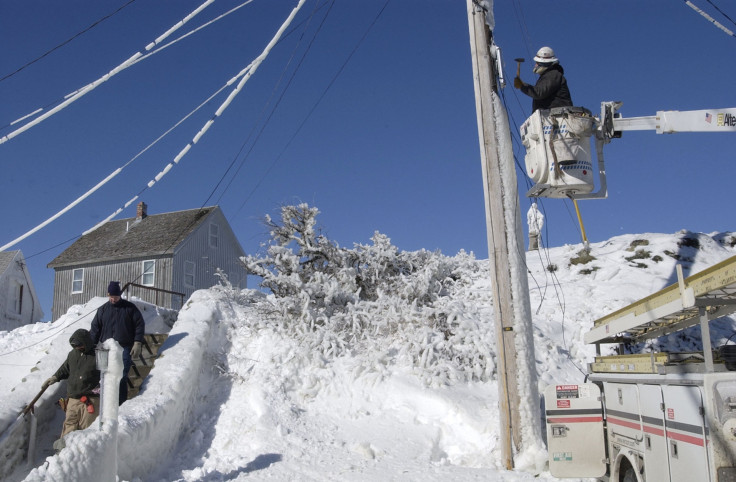FairPoint Strike: CWA, IBEW Reach Tentative Agreement With FairPoint To End 5-Month Work Stoppage

The U.S.’s longest ongoing strike may soon come to a close. And workers could return their jobs as soon as the middle of next week.
Last October, about 1,700 workers at FairPoint Communications, northern New England’s largest landline telecom provider, walked off their jobs after failing to reach a new contract agreement. After nearly five months of striking and many frigid picket lines, the company announced on Thursday it had reached a tentative agreement with the two unions representing employees: the International Brotherhood of Electrical Workers (IBEW) and the Communications Workers of America (CWA). Unions are voting to ratify by the contract in the hopes of returning to work on Wednesday.
"A long strike can be very depressing," said Julie Dawkins, 49, an administrative assistant in Portland, Maine, and IBEW member who has worked 21 years at the company. "It's been very emotional and hard, but with the support of everyone we made it through.... All my brothers and sisters are eager to get back to work and start helping their customers."
Strikes are increasingly rare in the United States. And in general, the longer a work stoppage goes on, the more the ultimate outcome is likely to benefit the employer. Indeed, in this case, the battle was largely defensive for the workers, who repair phone lines and staff call centers in Maine, New Hampshire and Vermont.
FairPoint is based in North Carolina and bought Verizon’s northern New England landline operations in 2008. Soon after, the company went bankrupt, and when it resurfaced, hedge funds had secured a controlling stake. When it came time for contract negotiations, the company pushed for cost-cutting measures such as requiring workers to contribute to health care costs for the first time, freezing and replacing the old pension, eliminating retiree health care benefits for current workers and acquiring the ability to hire outside contractors.
“The top five shareholders are hedge funds,” Peter McLaughlin, the unions’ bargaining chair, told Labor Notes when the strike began in October. “They’re not here to run a telephone business; they’re here to make money. If they can pretty this thing up and sell it, then they’ll try to do it.”
Neither side is releasing any information about the content of the tentative agreement. However, a Facebook page run by striking workers appeared to show near-unanimous enthusiasm for the deal.
In a joint statement, FairPoint and the unions praised the deal: “The new labor agreements will provide employees with wages and benefits that are among the best in northern New England. At the same time, the agreements permit the company to achieve a much more competitive position in the marketplace.”
Meanwhile, U.S. Sen. Bernie Sanders, I-Vt., and U.S. Rep. Chellie Pingree, D-Maine, both issued statements of support favorable to the unions.
Organized labor used to have a much greater presence in the communications sector. In 1983, 700,000 workers led by the CWA and IBEW went on strike at the national Bell System. Since then, the federally mandated breakup of Bell System, a series of mergers and the rise of wireless have all worked to diminish organized labor’s presence and bargaining power within the industry.
© Copyright IBTimes 2025. All rights reserved.





















